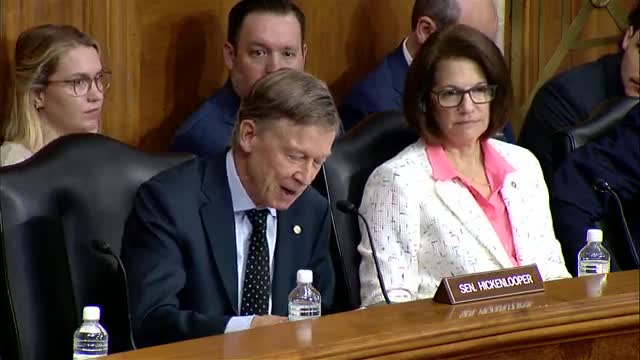Water Crisis Sparks Urgent Call for Collaborative Solutions
July 10, 2024 | Energy and Natural Resources: Senate Committee, Standing Committees - House & Senate, Congressional Hearings Compilation

This article was created by AI summarizing key points discussed. AI makes mistakes, so for full details and context, please refer to the video of the full meeting. Please report any errors so we can fix them. Report an error »

In a recent government meeting, discussions centered on critical water management issues, particularly concerning the Colorado River Basin, which is facing unprecedented drought conditions. Officials emphasized the importance of collaborative efforts among the seven basin states and tribal nations to develop sustainable water management strategies as current operational guidelines are set to expire in 2026. The consensus-building approach has been credited with staving off a crisis in the region, with optimism expressed for future cooperation and innovative solutions.
The meeting also highlighted Colorado's successful initiative to integrate a state park pass into vehicle registration, generating over $40 million in revenue for parks and wildlife. This model reflects the growing demand for outdoor recreation and the need for federal and state agencies to work together to enhance access to recreational opportunities across the country.
Senators raised concerns about the management of federal lands in the West, particularly in Nevada, where over 80% of land is federally owned. A call for a statewide resource plan was made to better align federal regulations with state and local needs, including affordable housing initiatives on public lands. The importance of including tribal voices in these discussions was also underscored, as Nevada is home to 28 federally recognized tribes.
Additionally, the meeting addressed environmental concerns related to contamination on tribal lands and the protection of sensitive ecosystems, such as those in Death Valley National Park. Commitments were made to collaborate on remediation efforts and to safeguard critical habitats from potential mining activities.
Overall, the meeting underscored the necessity of intergovernmental cooperation and stakeholder engagement in addressing pressing environmental and resource management challenges.
The meeting also highlighted Colorado's successful initiative to integrate a state park pass into vehicle registration, generating over $40 million in revenue for parks and wildlife. This model reflects the growing demand for outdoor recreation and the need for federal and state agencies to work together to enhance access to recreational opportunities across the country.
Senators raised concerns about the management of federal lands in the West, particularly in Nevada, where over 80% of land is federally owned. A call for a statewide resource plan was made to better align federal regulations with state and local needs, including affordable housing initiatives on public lands. The importance of including tribal voices in these discussions was also underscored, as Nevada is home to 28 federally recognized tribes.
Additionally, the meeting addressed environmental concerns related to contamination on tribal lands and the protection of sensitive ecosystems, such as those in Death Valley National Park. Commitments were made to collaborate on remediation efforts and to safeguard critical habitats from potential mining activities.
Overall, the meeting underscored the necessity of intergovernmental cooperation and stakeholder engagement in addressing pressing environmental and resource management challenges.
View full meeting
This article is based on a recent meeting—watch the full video and explore the complete transcript for deeper insights into the discussion.
View full meeting